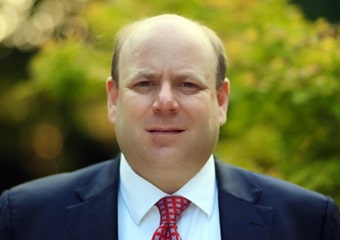On June 6, 2018, in State v. Perez, the South Carolina Supreme Court reversed a conviction based on a Sixth Amendment Confrontation Clause violation because the trial court did not allow Mr. Perez to cross-examine one of the prosecution’s critical witnesses about applying for a U-visa. The Court, however, passed on an opportunity to reconsider its controversial holding in State v. Wallace.
Wallace significantly expanded the prosecutions ability to introduce evidence of other bad acts in criminal sexual conduct cases. Wallace set forth factors for the trial court to consider whether the other bad acts are similar enough to be admissible in the current prosecution. In Perez, Justice Hearn, joined by Chief Justice Beatty, concurred in granting a new trial but wrote a separate opinion because she believes “the Court should take this opportunity to overturn our holding in State v. Wallace, 384 S.C. 428, 683 S.E.2d 275 (2009), which, in my opinion, has so expanded the admissibility of prior bad acts in sexual offense cases that the exception has swallowed the rule.” She observed:
[I]n a marked departure from earlier case law requiring some connection between crimes beyond mere similarity in order to meet the common scheme or plan exception, the Wallace majority held, “A close degree of similarity establishes the required connection between the two acts and no further ‘connection’ must be shown for admissibility.” Under this framework, prior bad acts are admissible as a common scheme or plan in sexual abuse cases when the similarities to the charged crime outweigh the dissimilarities.
(internal citations omitted).
Justice Hearn explained, “Wallace broadened the common scheme or plan exception to such an extent that it no longer has a meaningful exclusionary effect in sexual offense cases.” She added, “Without requiring a greater degree of connection beyond only a mere similarity, the exception has been enlarged such that it has become simply a means to prove a defendant’s criminal propensity.” She then warned:
The dangers in permitting the liberal admission of such prior bad acts are readily apparent. In fact, this Court has repeatedly warned of the prejudicial dangers stemming from the introduction of prior bad acts which are similar to the one for which the defendant is being tried. Absent an amendment to our rules of evidence creating a different categorical rule for sexual offenses, I would apply the common scheme or plan exception equally to sexual and nonsexual offenses alike. In the context of sexual offenses, mere similarities alone do not necessarily establish a logical connection between the crime charged and the prior bad acts such that the existence of one tends to prove the existence of the other. Similarity between the prior bad act and the crime charged is not the type of connection such that proof of one is proof of the other.
(internal citations omitted).
Justice Hearn and Chief Justice Beatty would have used Perez as the vehicle to overrule Wallace. Because of Perez, trial counsel should continue to object to other bad act evidence and point out that the continued validity of Wallace is in doubt.
Click these links to read the opinions in State v. Wallace and State v. Perez.



